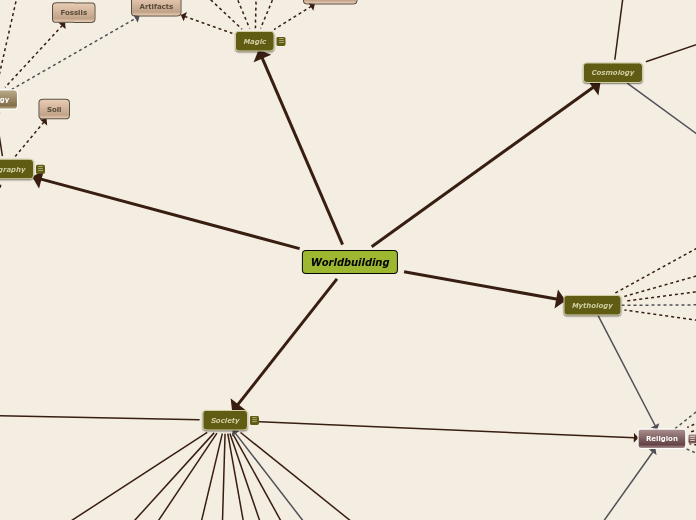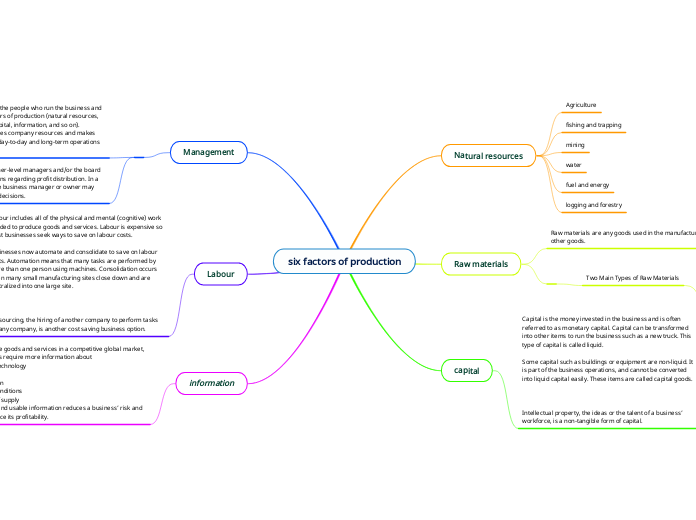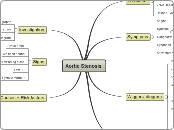Claremont Colleges Library: Community and Global Health Curriculum, 2013-2014
Community and Global Health Curriculum Curriculum Map: 2013-14
Claremont Colleges Library
Created 6/2013
Updated 3/2014
This map displays degree requirements, courses, faculty information, clubs & organizations, and Library resources associated with this subject area across the seven Claremont Colleges for the 2013-14 academic year. It was compiled using public information drawn from Colleges websites, course schedules and catalogs, and the Claremont Colleges Library website.
Contact Sean Stone at sean_stone@cuc.claremont.edu or Instruction Services Manager & E-Learning Librarian Char Booth at char_booth@cuc.claremont.edu if you have any questions.
Prior Instruction & Future Targets
Future IL Instruction/Intervention Targets & Outcomes
Prior Library Instruction
2012-13
2011-12
CGU
Research
Sexual Behavior
Alcohol, Tobacco and Substance Research
Study of Tobacco Use Among Young Adult South Asians (SSAYA)
Pacific Rim Transdisciplinary Tobacco & Alcohol Use Research Center
Ethnic Disparities in Smoking
Dual Processes in HIV Risk Behavior in Drug Abusers
Obesity Research
Stressful Life Events, Genetic Variants and Obesity among Chinese Adolescents
Obesity and Psychosocial Adjustment During Adolescence
Obesity Prevention Tailored for Health II
Neurocognitive Processes Research
Teenage Stimulant Use: Neurally Plausible Spontaneous and Reflective Processes
Neurocognitive Mechanisms of Decisions and Impulse Control in Nutrition Behavior
Imaging Implicit Marijuana Associations
Imaging Implicit Alcohol Associations
Habitual & Neurocognitive Processes in Adolescent Obesity Prevention
Transdisciplinary and International Research
Weaving an Islander Network for Cancer Awareness Research and Training (WINCART)
Study of Tobacco Use Among Young Adult South Asians (SSAYA)
Parenting to Prevent Problem Behaviors in Filipinos
Pacific Rim Global Health Framework
China Seven Cities Study
Degree Requirements
Master of Public Health/Master of Business Administration (Dual Degree)
Accelerated Bachelors/Master of Public Health
PhD in Health Promotion Sciences
Student Competencies
Students can specialize in the following established concentrations or devise one of their choosing with direction from the program director
Health Informatics
Global Health
Biobehavioral Sciences
Health Ecology & Environmental Studies
Health Communication
Health Policy & Economics
Neurocognitive Sciences
Behavioral & Nutritional Epidemiology
Public Health
In addition to required and elective coursework, students complete a qualifying examination, the dissertation and the dissertation defense
Four units of doctoral dissertation studies
A minimum of sixteen units of elective coursework
Sixteen units of research courses
Nine Core Courses
Capstone in Health Promotion Sciences
Manuscript Development
Advanced Research Methods
Research Methods
Epidemiology
Advanced Statistical Methods
Biostatistics
Advanced Theoretical Foundation of Health Promotion & Education
Theoretical Foundations of Health Promotion & Education
Master of Public Health
A capstone project whereby students demonstrate mastery of public health competencies
A supervised field training course, providing work experience in a public health agency or a faculty sponsored research project, with the purpose of integrating course concepts into a real world setting
A proposal writing seminar introducing students to the principles of grantsmanship
One general elective course from any of the university's schools, subject to approval of the Program Director
Choice of one of four concentrations, with four courses required in each. Students can specialize in (1) Health Promotion, Education and Evaluation; (2) Applied Biostatistics and Epidemiology; (3) Leadership and Management; or (4) Health Informatics.
Concentration in Health Informatics
Concentration in Leadership & Management
Concentration in Health Promotion, Education & Evaluation
Concentration in Applied Biostatistics & Epidemiology
Nine core courses which cover the core public health competencies and provide a foundation for further coursework in a chosen concentration
Faculty
Joint Appointment Faculty
Jason T. Siegel
Kathy Pezdek
Michael Hogg
Jo Hardin
Stewart I. Donaldson
William Crano
Dale Berger
Eusebio Alvaro
Adjunct Faculty
Lin Xiao
Sheryl Tyson
Paul Torrens
Krishna Poudel
Alonzo Plough
Michael Owens
Loren Lipson
Alexandra Levine
Liming Lee
Carol Koprowski
James W. Howatt
David Heymann
Alex Chen
Leslie Bernstein
Karen Belkic
Antoine Bechara
Smita Bhatia
SCGH Faculty
Bin Xie
Dennis Trinidad
Alan Stacy
Darleen Peterson
Kim Reynolds
Paula Palmer
Charles L. Gruder
Jerry L. Grenard
Deborah A. Freund
Susan L. Ames
C. Anderson Johnson
Courses
CGH 390 – Directed Research (4 units)
This course involves research conducted at the master’s level on a specific topic in community and
global
health. Maximum number of units applied to the degree is to be determined by the School. Graded
S/US.
CGH 396 – Special Topics in Community and Global Health (4 units)
The course involves lecture and discussion focused on specific topics in community and global
health. Course
topic will vary from semester to semester.
IS 303 – Organizations as Information Processing Systems (4 units)
The goal of the course is to introduce students to the major concepts and role of information
technology (IT) in
the modern organization. Today, IT provides firms and managers with strategic advantage in a
competitive and dynamic market. The course takes a practical and managerial approach by bringing in
basic terminology, new technologies, communication networks and the Internet, and showing how these
become a critical success
factor in the operation of companies in the business environment.
INFOSCI 373 – Spatial and Visual Information Systems (4 units)
This course provides an overview of the theoretical foundations and the applied use of Geographic
Information
Systems (GIS). At the end of the course, each student has a working knowledge of GIS and how to
apply these systems in various situations and organizational settings. Students demonstrate their
understanding of the principles and fundamental concepts of GIS in a culminating project. The
class is held in a computer lab, allowing hands-‐on learning involving a wide and growing range of
GIS software applications and spatial data
resources.
HIM 385– Consumer Health Informatics (4 units)
This course focuses on electronic health records generally and personal health records
specifically. Through
presentations, discussions, and case study analyses participants will explore best practices and
guidelines for the use of e-‐Health applications (e.g. Electronic Health Records [EHRs] and
Personal Health Records [PHRs]. The evidence base that exists regarding technology's role in
behavior change and chronic disease management (e.g. diabetes, heart failure, depression) will also
be addressed. This course will serve to educate participants on the gaps and needs of the consumer
as a springboard for considering and enacting exciting new ideas for
using e-‐health systems to provide public health benefits throughout society.
HIM 381 – Public Health Informatics (4 units)
This course focuses on the dimension of health informatics that takes as its sphere of influence
the community,
public, and population health domains. Public Health Informatics focuses on the collection and
utilization of data as related to a specific or general population to generate knowledge to
influence or progress public health practices, policy decisions, research, and dissemination of
information for the greater good. In a directed readings and discussion format, we will read policy
pieces, understand national and international research studies, analyze case demonstrations, and
explore other new and related developments, such as the Public Health Information Network (PHIN).
In addition, the course will host several expert guest speakers (practitioners, researchers, etc.)
for whom the use of data and information for public and population health
issues is a concern.
CGH 319 – Current Issues in Global Public Health (4 units)
This course is an intensive review of select topics in the practice of global health leadership and
management. It
reviews emerging trends, lessons learned, best practices, and critical factors connected to the
successful implementation, leadership and support of expanded health responses (public, private
and non-‐profit sectors) at local, national and international levels. Topics include strategies
and interventions to achieve workforce excellence, enhance organizational performance, strengthen
public health infrastructures, and improve the health
status and well-‐being of people around the globe.
CGH 318 – Management of International Health Programs and Organizations (4 units)
This course reviews the management of health programs and services in the developing world,
including
international technical cooperating, donor and development agencies as well as private and
non-‐profit health organizations. It offers a management perspective to address the most prevalent
problems of health care delivery and systems performance around the world as they relate to the
specific administration functions of planning,
organizing, resourcing, directing and controlling medical and public health services.
CGH 317 – Ethics, Human Rights and Cultural Diversity (4 units)
This course explores ethical principles in the distribution of health resources, the conduct of
global public health
research and the implementation of public health initiatives and practices across different
nations, cultures and
religions, as well as differences in the concepts of right and wrong. Specific areas that are
explored include the
role of national and international Institutional Review Boards, research integrity, the ethics of
health as a political entitlement, state obligation, or a commercial commodity, the right to
health, the ethical challenges of institutionalizing worldwide western concepts of informed
consent procedures and confidentiality while at the same time seeking to advance scientific
discovery and promote universal public health justice for the poor and
disadvantaged.
CGH 316 – Public Health Leadership for the 21st Century (4 units)
This course focuses on the knowledge, skills and practical tools needed to direct organizations to
successful
implementation of institutional vision and overall strategy. It is organized into six major Modules
–future-‐focused leadership, leading public health systems, formulating strategy, leading and
managing change, developing public health organizations, and implementing strategy. Each module
offers an applied training opportunity to gain advanced knowledge to build executive and managerial
skills lead and enhance health systems performance.
CGH 315 – Introduction to Clinical Trials (4 units)
*Cross listed as MATH 250PO, Statistical Methods for Clinical Trials Data
A second course in Biostatistics. Emphasis on the most commonly used statistical methods in
pharmaceutical and
other medical research. Topics such as design of clinical trials, power and sample size
determination, contingency
table analysis, odds ratio and relative risk, survival analysis.
CGH 314 – Emerging Chronic & Infectious Diseases Worldwide (4 units)
This course provides an overview of the causative factors and demographic distribution of the major
chronic
diseases and infectious in the world. Epidemiologic concepts, methods and research design are
emphasized. Necessary tools for applying epidemiologic approaches to chronic disease prevention are
provided. The course will also cover topics in microbiology, immunology, laboratory diagnosis,
outbreak investigation, infectious disease diagnosis and control in populations and very basic
analytic methods. It provides students with exposure to local public health department experts in
various important contemporary topics such as vector control, emerging
infections and bioterrorism.
CGH 313 – Research Methods in Public Health (4 units)
Students will gain an understanding of the principles and skills of conducting behavioral research,
using qualitative
and quantitative approaches commonly used in public health settings.
CGH 312 – Data Analysis Methods (4 units)
Students learn how to manage and analyze data using the SAS system. Topics include inputting data
into SAS,
preparing data from analysis, data screening to understanding distributions, detect outliers etc.,
hypothesis testing (e.g. t-‐tests, nonparametric procedures, chi-‐square tests, etc.), simple and
multiple linear regression, techniques for
building and evaluating a regression model, analysis of variance model and logistic regression.
CGH 311 – Curriculum and Materials Development (4 units)
This course is designed to increase knowledge and skills in curriculum writing and training in
health promotion
and disease prevention settings. The course includes a review of the applicable learning theories
and provides an
opportunity to design curriculum for demographically diverse groups. Students work in small groups
to develop a
curriculum and conduct a presentation/ training based on the needs of varied local health
organizations.
CGH 310 – Global Health: An Interdisciplinary Approach (4 units)
This course provides an interdisciplinary approach to understanding key public health challenges
that transcend
local and national boundaries and require collaborative solutions. Threats to the health security
and well being of communities in the U.S. and abroad are extensive ranging from natural and
technical disasters to environmental degradation, poverty and health disparities, and emerging and
non-‐communicable disease. Topics that impact health outcomes, including globalization and
climate change, over-‐ and under nutrition, substance use, accidents and injuries, disasters and
complex humanitarian emergencies, poor reproductive and maternal child health practices, and
cultural influences will be addressed from a multi-‐sectoral perspective. Innovative solutions to
public health problems, including use of technology, micro credit, public-‐private collaboration,
and community and grassroots activities will be highlighted. The course will utilize interactive,
participatory learning methods, including in-‐depth cases studies, class debates, and a field
study project to provide maximum opportunity to
develop problem-‐solving strategies for public health application.
CGH 309 – Monitoring and Evaluation in Global Public Health Programs (4 units)
This course introduces students to the language and theory of program evaluation to undertake their
own
evaluation, including how to pose evaluation research questions, data collection methodologies and
appropriate
methods for various evaluation objectives, and various evaluation designs.
CGH 308 – Foundations of Program Planning (4 units)
This course introduces the core concepts, values, and methods of public health program planning and
evaluation.
Students develop skills for assessing community needs for health promotion; preparing written
measurable health promotion program objectives with associated methods for achieving those
objectives; designing health promotion program action plans that include implementation schemes;
and evaluation strategies for measuring health program process, impact, and outcome effectiveness.
Students apply their knowledge of health promotion theories
to effectively to plan, implement, and evaluate health promotion and communication programs.
CGH 307 – Public Health Capstone (2 units)
Serves as the culminating experience for the degree. With oversight from the Program Director,
students develop a portfolio and
final paper that demonstrates mastery of student competencies.
CGH 306 – Supervised Field Training in Public Health (4 units)
The goal of this course is to provide students completing their field training an opportunity to
integrate and apply knowledge and
skills acquired in their respective course work to public health work settings. Students complete a
400-‐hour internship within a
public health agency or faculty research project. A final paper and presentation completes this
requirement.
CGH 305 – Seminar in Grant Writing and Proposal Development (2 units)
The goal of this course is to provide students completing their field training an opportunity to
enhance their skills in the area of
grant writing and reviewing. The student will learn the steps in planning and writing the grant,
understanding the funding
environment, learning how to choose different types of grants, and understand the submission and
review process.
CGH 304 – Environmental and Occupational Health (4 units)
This course provides a broad overview of the field of environmental and occupational health,
developing a public health approach
to understanding and preventing disease and disability. Students apply the principles of the
biological impact pathway and environmental epidemiology to environmental and occupational
health issues. Students analyze the exposure-‐disease continuums and disease prevention. Emphasis
is placed on learning and using concepts related to the sources and behavioral determinants of
exposure, the social behavioral, Physiological and genetic basis of sensitivity, and
dose-‐response relationships.
CGH 303 – Health Services in the US and Abroad (4 units)
This course examines the health care delivery system to understand contemporary issues affecting
the health of the American and
International public and the institutions that provide health services and protect health. The
course includes the historical development of various health care systems, determinants of health
and health care utilization, the role of health care providers, health policy and politics, health
care financing, public health, and the interactions of various components of the systems. The
class emphasizes how institutions within the health care delivery system affect public health
including planning, organization,
administration, evaluation and policy analysis.
CGH 302 – Epidemiology (4 units)
This course provides an overview of the causes, distribution, and control of disease in
populations. Students are provided with
the skills and knowledge to investigate the epidemiology of a specific disease or other
health-‐related phenomenon and to
critically evaluate population-‐based research studies designed to test health-‐related
hypotheses.
CGH 301 – Biostatistics (4 units)
Students are trained in the most commonly used statistical methods in clinical and experimental
research. Students learn to select
the most appropriate data analytic methods; how to apply these methods to actual data; and how to
read and interpret computer
output from commonly used statistical packages. In addition, the students learn to read, critique
and interpret statistical concepts
in the health science literature.
CGH 300 – Theoretical Foundations in Health Promotion & Education (4 units)
This course provides an opportunity for students to explore the theoretical issues and current
methodologies related to
understanding and influencing health behavior change in diverse populations. The course will
focus on the social and behavioral determinants of health on the individual, interpersonal,
community, institutional and policy levels. The course features guest appearances by
representatives from community-‐based organizations who relate course material to current
challenges in public
health practice.
Library Resources
Research Guide
Sean Stone, Librarian Liaison









